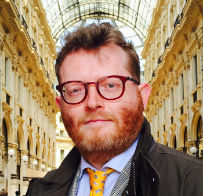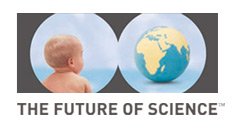Giuseppe Testa

ENG. Giuseppe Testa holds an MD from the University of Perugia, a PhD from the European Molecular Biology Laboratory in Heidelberg, and an MA in Health Care Ethics and Law from the University of Manchester. His unique accomplishment is the successful pursuit of a parallel career as practicing life scientist and scholar in Bioethics and Science and Technology Studies (STS).
A twice European Research Council (ERC) awardee, Giuseppe Testa is Professor of Molecular Biology at the University of Milan and Principal Investigator at the European Institute of Oncology in Milan where he heads the Laboratory of Stem Cell Epigenetics focusing on epigenetic regulation, cell reprogramming and disease-modeling in cancer and neurodevelopmental disoders. He has published in leading journals including Nature Genetics, Nature Communications, Nature Methods, Nature Biotechnology, Science, Cell, Cell Stem Cell, Cell Reports, Stem Cell Reports, American Journal of Human Genetics, PLoS Genetics, Biosocieties, Journal of Medical Ethics, New Genetics and Society. In 2006 he co-founded the interdisciplinary PhD program of the European School of Molecular Medicine on ‘Foundations and Ethics of the Life Sciences’, the first example of a thoroughly interdisciplinary PhD across the life sciences and the humanities. His first book ‘Naked genes: Reinventing the Human in the Molecular Age’, co-authored with Helga Nowotny, published in German, English and Italian was widely acclaimed in the leading international press. He serves on several research networks and academic societies, including the International Society for Stem Cell Research (ISSCR), the International Human Epigenome Consortium (IHEC), the European Bank for induced pluripotent Stem Cells (EBiSC), the Italian Society of Cell Biology and Differentiation (ABCD) and the Research Ethics and Bioethics Committee of the National Research Council (CNR). He is member of the editorial board of Stem Cell Reports, the Journal of Biological Chemistry and the Journal of Medical Ethics and is the recipient of several scientific prizes, including in 2003 the Roche Prize for leading bioscientist of the next decade. His next book ‘Bioemocrazie e digitalizzazione del vivente’ (Digitizing Humanness across Scales of Life and Power) is forthcoming with Feltrinelli in 2018.
ITA. Giuseppe Testa si è laureato all'Università degli Studi di Perugia. Ha svolto il dottorato presso il Laboratorio Europeo di Biologia Molecolare di Heidelberg e conseguito un Master in Bioetica e Biogiurisprudenza all'Università di Manchester. Il suo più grande successo è di essere diventato contemporaneamente scienziato nell'ambito delle scienze naturali e studioso attivo di bioetica, scienza e tecnologia (STS, Science & Technology Studies).
Due volte vincitore di un progetto di ricerca dell'ERC (European Research Council), è Professore di Biologia Molecolare all'Università degli Studi di Milano e Principal Investigator all'Istituto Europeo di Oncologia di Milano, dove dirige il Laboratorio di Epigenetica delle Cellule Staminali concentrandosi sulla regolazione epigenetica, la riprogrammazione cellulare e la creazione di modelli di malattie, in particolare i tumori e i disturbi del neurosviluppo. I suoi articoli sono comparsi nelle più importanti riviste scientifiche, tra cui Nature Genetics, Nature Communications, Nature Methods, Nature Biotechnology, Cell, Cell Stem Cell, Cell Reports, Science, PLoS Genetics, Biosocieties, Journal of Medical Ethics, e New Genetics and Society. Nel 2006, è stato co-fondatore del programma interdisciplinare di dottorato della Scuola Europea di Medicina Molecolare in "Scienze della Vita: fondamenti ed etica," primo esempio di dottorato con forte vocazione interdisciplinare incentrato sulle scienze naturali e gli studi umanistici. Il suo primo libro Geni a nudo: Ripensare l'uomo nel XXI secolo, scritto assieme a Helga Nowotny, è stato pubblicato in tedesco, inglese e italiano ricevendo riscontri positivi dalle principali pubblicazioni internazionali. Fa parte di numerose reti di ricerca e società accademiche, tra cui l'International Society for Stem Cell Research (ISSCR), l'International Human Epigenome Consortium (IHEC), la European Bank for induced pluripotent Stem Cells (EBiSC), l'Associazione di Biologia Cellulare e Differenziamento (ABCD) e la Commissione per l'Etica della Ricerca e la Bioetica del CNR. È inoltre membro delle commissioni editoriali di Stem Cell Reports, Journal of Biological Chemistry e Journal of Medical Ethics. Ha ricevuto numerosi riconoscimenti scientifici, tra cui il Roche Prize come miglior scienziato emergente del prossimo decennio nel 2003. La pubblicazione del suo ultimo libro Biodemocrazie e digitalizzazione del vivente per la casa editrice Feltrinelli è prevista per il 2018
Governing the Future: the Intertwined Paths of Science and Ethics
ENG. Bioethics has become a key instrument in the governance of the life sciences, yielding a rich palimpsest of resources, discursive and institutional alike, through which technoscientific innovation is brought into alignment with normative commitments and political visions. Along the way, and most notably in common law countries, technoscientific and ethical/legal innovations have often displayed the hallmarks of a mutually constitutive dynamics that offers little evidence for the trite law-lag narrative. For this very reason, however, the often seamless integration of technoscientific and bioethical expertise has been criticized as a pronounced example of technocratic drift, with salient aspects of the human condition delegated to experts at the very moment in history when they become amenable to unprecedented degrees of biotechnological control. The challenge of our biotech future is therefore primarily one of governing the governance, ie. of letting our democratic commitment be itself the focus of vigorous innovation in order to enable a substantive and accountable deliberation over our new mastery over the living
Governare il futuro: quando scienza ed etica s'incontrano
ITA. La bioetica ha assunto un ruolo fondamentale nella governance delle scienze biologiche, apportando un ricco palinsesto di risorse discorsive ma anche istituzionali che portano a un allineamento tra innovazioni scientifiche, priorità normative e prospettive politiche. Al contempo, specialmente nei paesi in cui vige il common law, le innovazioni tecnico-scientifiche ed etico-legali si sono spesso manifestate all'interno di una dinamica reciprocamente costitutiva, che smentisce la narrativa ormai logora del law lag (ovvero il ritardo cronico del diritto rispetto ai tempi della scienza). Tuttavia, per questa stessa ragione, l'integrazione spesso lineare tra competenze tecnico-scientifiche e bioetiche è stata criticata come un chiaro esempio di deriva tecnocratica, in cui aspetti salienti della condizione umana vengono delegati a degli esperti proprio nel momento storico in cui divengono passibili di un controllo biotecnologico senza precedenti. La sfida futura per le biotecnologie consisterà dunque in primis nel riuscire a governare la governance, ovvero di consentire al nostro impegno democratico di diventare il punto focale di una vigorosa innovazione, al fine di condurre una riflessione profonda e responsabile sulla nostra nuova capacità di gestire l'esistenza





